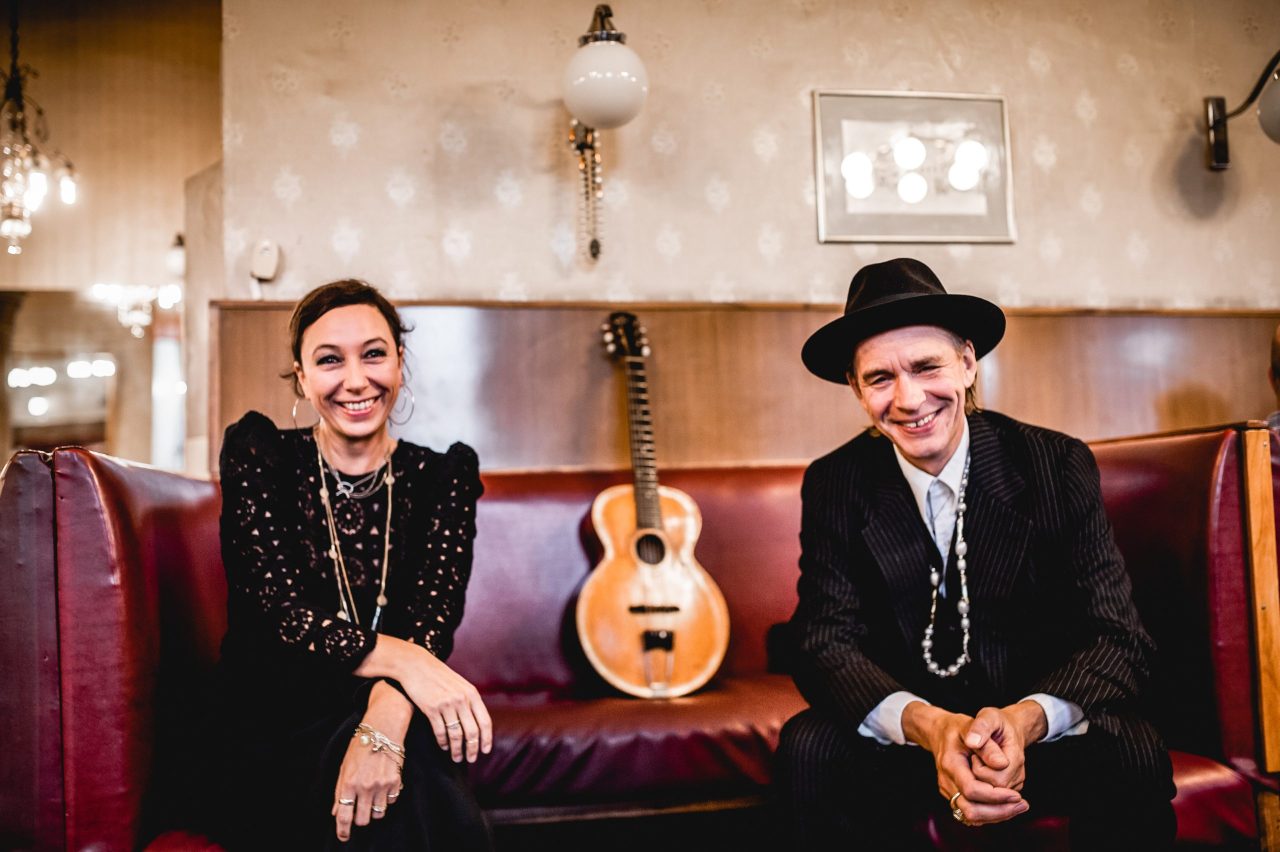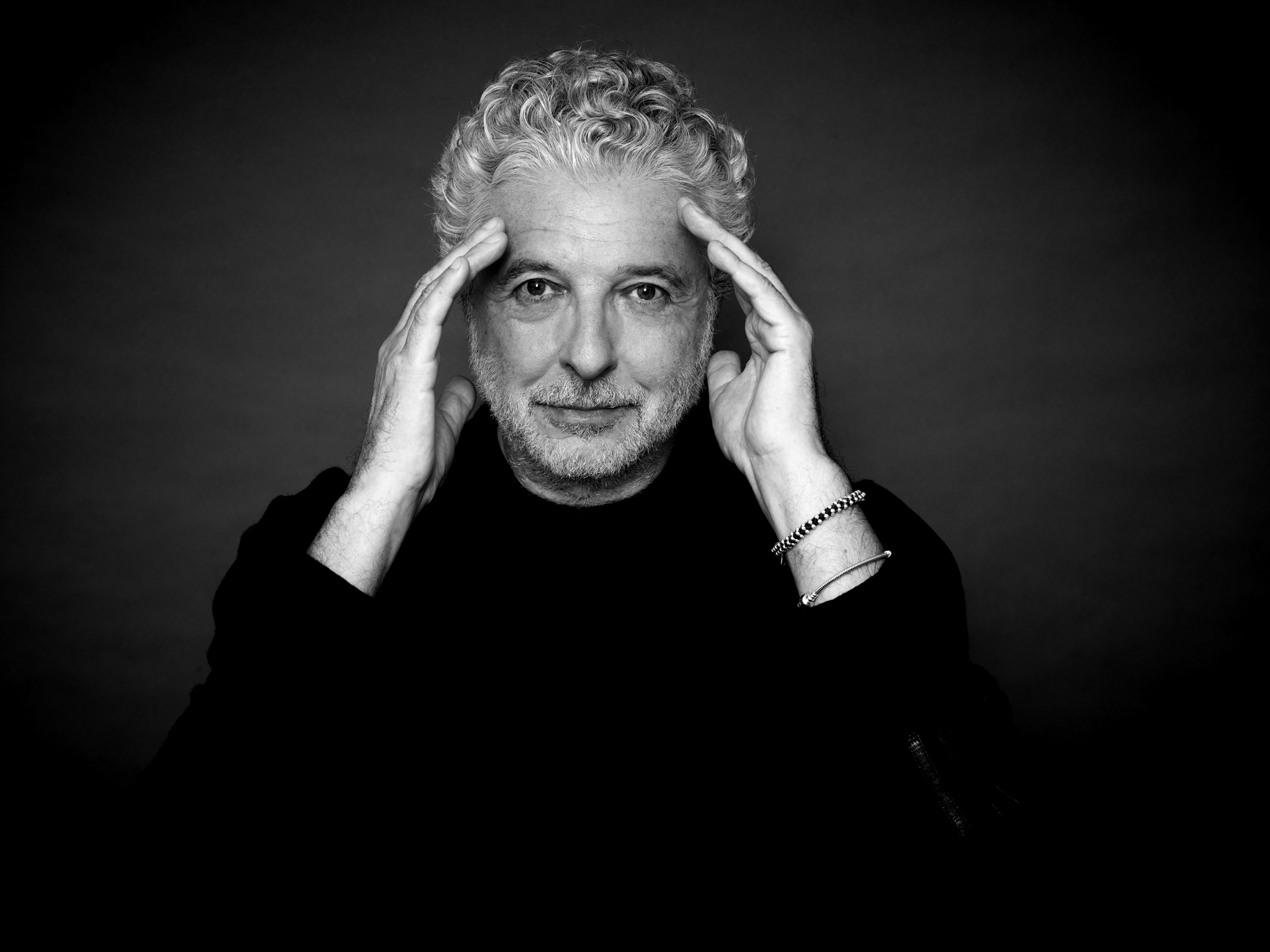

The Idea behind Remassuri
“Like a house you live in”
A conversation with the founding trio André Heller, Ursula Strauss and Ernst Molden about the Remassuri spirit, and how Viennese song can go straight to the soul.
Mr. Heller, do you see yourself continuing your early work with the Wienerlied some fifty years later with Remassuri?
André Heller: It has long been something of a passion of mine to create a kind of revue with a playful approach to Viennese music that will give people – young and old, from here and from abroad – a glimpse of just how entertaining and heartbreaking, how unusual, deeply moving and inspiring the Viennese style of composing and singing can be.
Ernst Molden: One enduring memory from my youth is of Flic-Flac, the great variety show that you, André, put on at the Vienna Festival in 1981. I was deeply impressed by how unpretentious the performing arts could be. What I still love so much about André Heller, the artist, is how he will take something that is simple and touching and elevate it to a higher plane just by the warmth and respect of his perception. To be able to experience at close quarters how this man works, some 45 years after Flic-Flac, to be involved in this process of elevating folk art to an exalted level, that’s what I enjoy about it.
Isn’t the question of what is allowed to be called Viennese or folk art a burning political issue these days?
Heller: That’s the problem of those who have made it an issue. For me, the definition of Viennese is everything I perceive as such. The Josefsplatz in the snow, certain films with Hans Moser, Paul Hörbiger and Maria Andergast, the melancholy of Oskar Werner, certain hand gestures Helmut Qualtinger used to make, boys and girls playing Pfitschigogerl (a kind of football game with coins or buttons for players)… My idea of what’s Viennese certainly goes further than that of others.
Ursula Strauss: And folk culture is a wonderful thing, you just have to make sure it doesn’t gather dust. It’s like a house you live in. If you close your eyes to what’s going on around you, the house will turn into a prison. It will age and the walls will start to crumble. Remassuri is a place that looks after this house, keeps renovating it, and keeps an eye on how you can combine the modern with the old. That’s what I like about it. Urban folk music needs to have a place and must be taken seriously. It can do so much for us because it goes straight to our souls.
So it’s significant that Remassuri is located right in the centre of the city?
Heller: Of course it is. If you ask people in other cities around the world, ‘Where can I find some quality local entertainment in the evening?’, they’ll say: ‘Oh, there’s a flamenco bar round the corner’ or ‘Down the road you can listen to some good chansons by Brél or Piaf’. You don’t get that in Vienna. They always send you to the Heurigen taverns in the suburbs.
Molden: We want to make it possible for what we consider to be the best Viennese folk/roots band to open a direct, enchanting channel to this music with their vast repertoire. This repertoire has now even been expanded at André Heller’s, Uschi’s and my own suggestions. It’s a kind of music that can be quite difficult to access as you will either end up with the Kitsch served up by sleazy Heurigen duos or with an orthodox purism that doesn’t really want to share its deep knowledge. But we think that this is beautiful music, it’s a deeply urban, refined art form that has been renewing itself constantly since the mid-nineteenth century. So we want to bring it back to the city centre after decades of being banished to folk song appreciation societies or suburban wine taverns. That’s our main mission.
Heller:And to make sure there’s a different kind of nuance to be experienced every few minutes. We don’t just offer an evening where one musical number follows another, but perhaps there might be a short film in-between about shadow plays from the 1930s with figures moving to an Impromptu by Schubert. Or the mime artists from Mummenschanz enacting a love story between a viola and a violin.
Is it also important for an authentically Viennese institution to have a ‘Zuagraaste’ (Viennese for incomers from outside of the city) amongst you?
Molden: Yes, Uschi is from the Wachau region, which represents a kind of ancestral extension of the Viennese cultural space. Her cultural context was such that when she was younger she’d be tipsy after two spritzers at the Heurigen, and would jump on the table and sing because she liked it.
Strauss: Haha, yes, I always used to sing. My childhood and my youth were spent in Pöchlarn in the Melk district. St Pölten was the big city to me. And then my brothers went to Vienna to study, and that was a revelation. I fell in love with this city right away, also because of its size and anonymity. The atmosphere was amazing, even though Vienna had a much greyer, more conservative feel thirty years ago. This morbidity André sings about in ‘Wean, du bist a Taschenfeitl’ (his song ‘Vienna you’re a flick-knife’) was much more apparent back then. It hasn’t all gone away either, but today you have to peel back the city’s beautiful dress to find it.
Heller: I am grateful for the opportunity to be associated with the extraordinary qualities of Uschi and Ernst. We refuse to cater to the cliché that Vienna is the capital of grumpiness in any way. We get a lot of joy out of Remassuri, and we want to place this joy at the core of our work and our friendship.
Interview conducted by Robert Rotifer
Pictures: Remassuri (c) Stefan Liewehr
André Heller (c) Suzy Stöckl
Ernst Molden & Ursula Strauss (c) Daniela Matejschek
